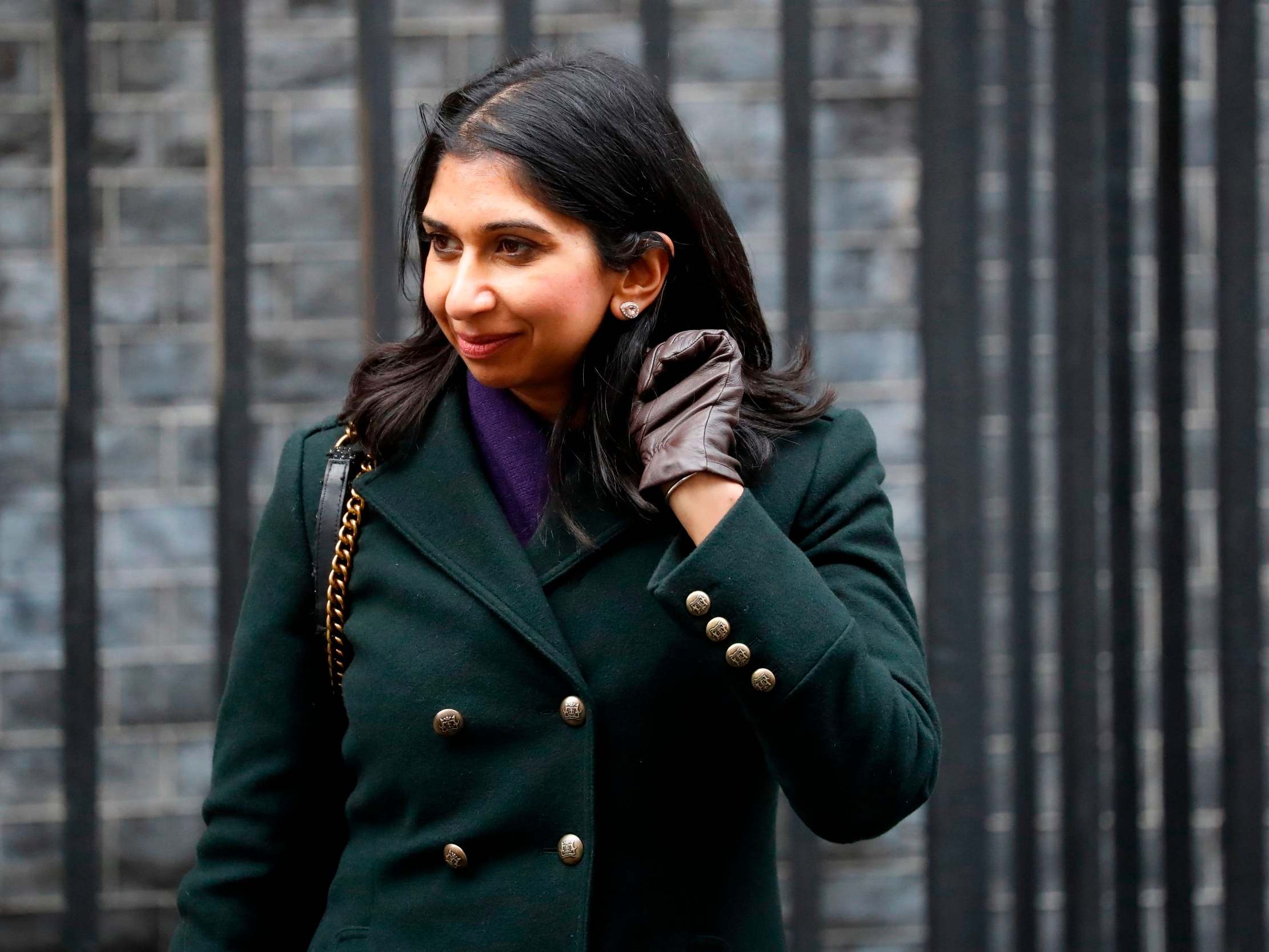Boris Johnson’s attack on the judiciary is part of a wider move against the ‘enemy within’
There is a legitimate debate to be had on whether the judiciary has encroached on political territory. But there’s a danger of taking a sledgehammer to crack a nut, writes Andrew Grice


We must take back control, not just from the EU, but from the judiciary,” Suella Braverman, then a Tory backbencher, wrote last month. “The political has been captured by the legal. Decisions of an executive, legislative and democratic nature have been assumed by our courts.”
Her ConservativeHome column was perfectly timed music to Boris Johnson’s ears. It probably won her a surprise appointment as attorney general two weeks later.
Braverman had another appealing quality for Johnson. She is a Brexiteer, a former chair of the European Research Group who was very briefly a Brexit minister before resigning (as Johnson had already done) over Theresa May’s deal.
Braverman is likely to become a poacher turned gamekeeper: before becoming an MP, she was a barrister specialising in judicial review cases. She is now set to spearhead Johnson’s attempt to clip the judges’ wings, by limiting the right of pressure groups to challenge the government through judicial review.
Along with Michael Gove and the lord chancellor Robert Buckland, Braverman will draw up the terms of a review of the relationship between the government, parliament and the courts, promised in the Tory manifesto. A democracy, constitution and human rights commission will ensure judicial review “is not abused to conduct politics by another means or to create needless delays”.
An even more controversial item could be on the commission’s agenda: greater political oversight of the appointment of judges. One option would be for the existing independent judicial appointments commission to recommend a shortlist, with the final call made by the lord chancellor, a cabinet minister, who would use their limited power of veto more frequently. Alternatively, a parliamentary committee might confirm judicial appointments.
This would be a dangerous step towards an American-style supreme court with judges wearing political labels. Wise Tory heads should remind Johnson their party will not be in power forever. A good rule of thumb when considering a policy is: how would we react if the other side did this? Imagine the outcry if Jeremy Corbyn had proposed politicising the judiciary.
There is a legitimate debate to be had on whether the judiciary, probably by accident than design, has encroached on political territory. But there’s a danger of taking a sledgehammer to crack a nut. Lord Sumption, a former Supreme Court judge tipped in Whitehall as a possible chair of the review, warns that “judicial attitudes” cannot be changed by legislation. He accepts the “politically intrusive tendency of modern public law is a serious problem”, but argues powerfully it is best sorted by the government working with rather than against the judges.
Perhaps the government’s real agenda is to threaten the judiciary, just as it browbeats the BBC, in the hope it is cowed into submission. Yet it might prove counterproductive, making the judges more likely to bite back.
Revenge attacks are not a good basis for policy. Yet the move against the judges smacks of a response to the Supreme Court’s spectacular ruling last autumn that Johnson acted unlawfully by suspending parliament for five weeks.
The irony is that the court was defending the very rights of parliament the Tories purport to uphold. The other case uppermost in ministers’ minds is halting the deportations of 25 foreign criminals to Jamaica on human rights grounds. That such rulings are inconvenient for the government does not make them wrong, or “political”.
Braverman will have fewer qualms about clipping the judiciary’s wings than her predecessor Geoffrey Cox. Despite moaning from fellow ministers that he spoke too much in cabinet, he wasn’t fired for that, but for being too independent-minded – precisely what the government’s senior law officer is supposed to be.
Significantly, since losing his job, Cox has urged the government to tread softly and protect judges from political attacks. Buckland, who kept his job as lord chancellor, said he would oppose the political appointments because “the independence of the judiciary is part of the cornerstone not just of the rule of law, but of our democracy as well”.
Despite such warnings, Johnson and his senior adviser Dominic Cummings have the judges firmly in their sights. It is part of a wider attack on institutions they seem to regard as the enemy within, including the BBC, the civil service in general and Treasury in particular, parliament (before Johnson had a huge majority, that is), the military top brass, the CBI and Westminster journalists (last but not least: I declare an interest).
There is another pattern of behaviour. Surprisingly for someone who wants to be liked, Johnson seems unable to forgive or forget when people or bodies cross him, or were on the wrong side of the Brexit divide. If he learnt how, he would be a better and more unifying leader of the country.
Join our commenting forum
Join thought-provoking conversations, follow other Independent readers and see their replies
Comments